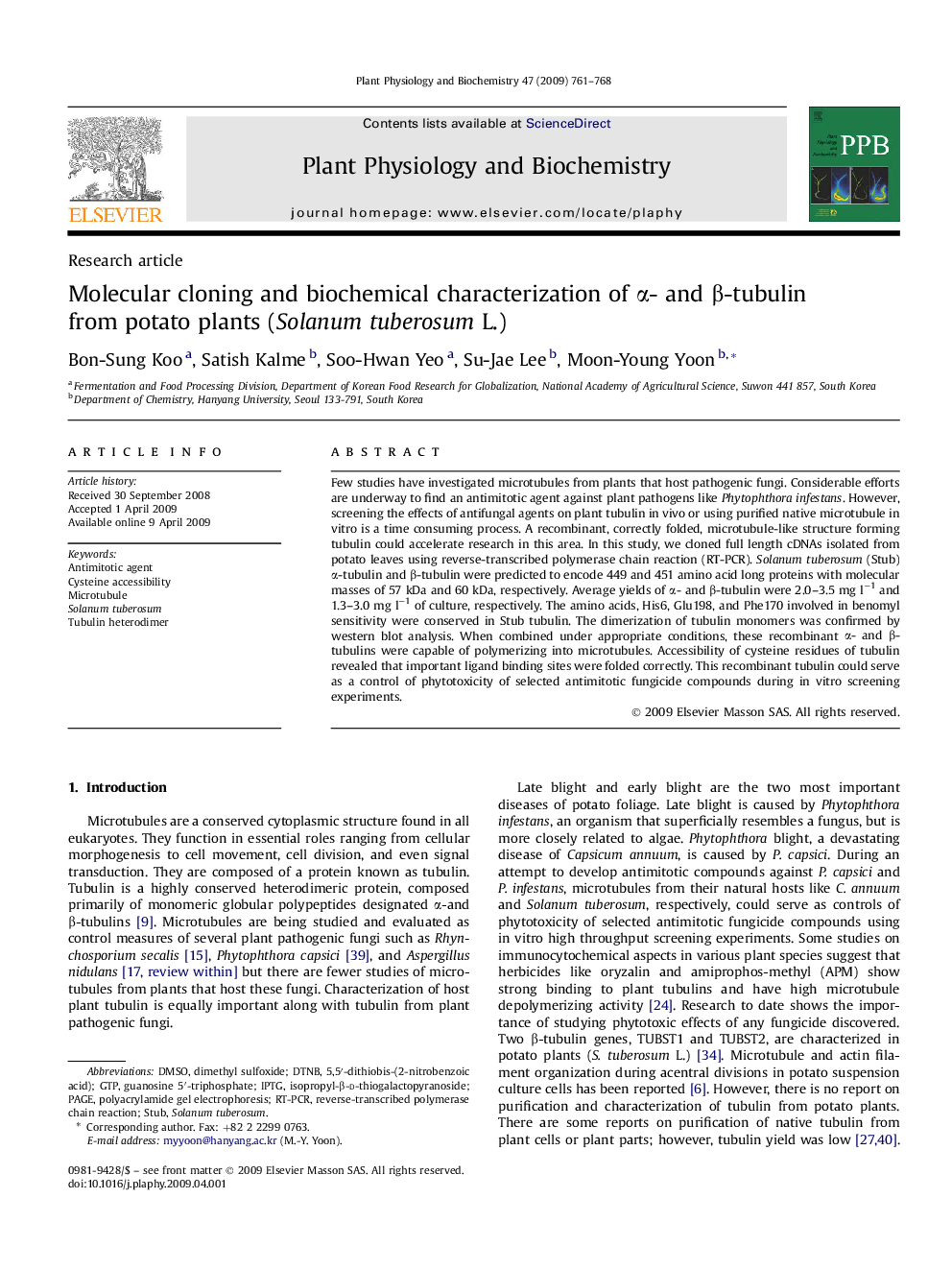| Article ID | Journal | Published Year | Pages | File Type |
|---|---|---|---|---|
| 2016703 | Plant Physiology and Biochemistry | 2009 | 8 Pages |
Few studies have investigated microtubules from plants that host pathogenic fungi. Considerable efforts are underway to find an antimitotic agent against plant pathogens like Phytophthora infestans. However, screening the effects of antifungal agents on plant tubulin in vivo or using purified native microtubule in vitro is a time consuming process. A recombinant, correctly folded, microtubule-like structure forming tubulin could accelerate research in this area. In this study, we cloned full length cDNAs isolated from potato leaves using reverse-transcribed polymerase chain reaction (RT-PCR). Solanum tuberosum (Stub) α-tubulin and β-tubulin were predicted to encode 449 and 451 amino acid long proteins with molecular masses of 57 kDa and 60 kDa, respectively. Average yields of α- and β-tubulin were 2.0–3.5 mg l−1 and 1.3–3.0 mg l−1 of culture, respectively. The amino acids, His6, Glu198, and Phe170 involved in benomyl sensitivity were conserved in Stub tubulin. The dimerization of tubulin monomers was confirmed by western blot analysis. When combined under appropriate conditions, these recombinant α- and β-tubulins were capable of polymerizing into microtubules. Accessibility of cysteine residues of tubulin revealed that important ligand binding sites were folded correctly. This recombinant tubulin could serve as a control of phytotoxicity of selected antimitotic fungicide compounds during in vitro screening experiments.
